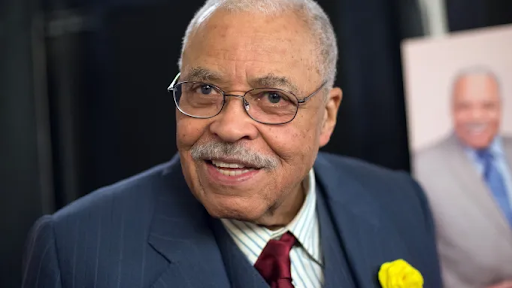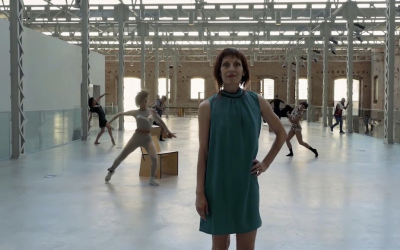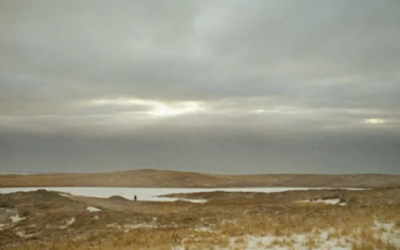Source: Deadline
For many actors, the opportunity to play one character that will go on to become one of the most iconic figures in all of popular culture is something that they’d most likely take without question, even if they aren’t fully aware that such an outcome is even possible. Even if the rest of their filmography doesn’t quite reach the heights of success as that one role, it should still be enough to cement their place in culture and deem them one of the most loved actors of their generation. In the case of James Earl Jones, there are actually two characters played by him that, in the time since their respective cinematic introductions, have become some of the most well-known and admired of the past few decades, and interestingly enough, they have one major trait in common. If Jones is not best known for his vocal performance as Darth Vader in George Lucas’ “Star Wars” franchise, then he is best known for his vocal performance as Mufasa in Disney’s 1994 animated classic “The Lion King”; in both films, Jones plays a father who maintains a powerful presence but is ultimately revealed to be a caring parent. To those who grew up watching these films, Jones’ ability to play an engaging paternal figure made him incredibly endearing, and to those exact same people, the news of his passing on Monday, September 9th must surely come as a devastating surprise.
Born on January 17th, 1931 in the northern Mississippi community of Arkabutla, Jones faced a great deal of challenges as a child due to a stutter that sometimes made it difficult for him to properly communicate. Jones credits his passion for poetry and acting for helping him overcome the struggles that came with this disability, and after performing military service for the United States Army during the Korean War, Jones made a commitment to pursue full-time acting, first landing various roles on the stage before gradually transitioning to the screen, though throughout his career, he would make numerous appearances in both mediums and receive more or less the same amount of acclaim in each.
Jones earned his first major acting role in 1957 for the Broadway production of “Sunrise at Campobello”, a play about United States president Franklin D. Roosevelt and his struggles with polio. Shortly afterwards, Jones found himself building a reputation through various appearances in Shakespeare in the Park performances, those that included plays like “Hamlet” and “King Lear”. It wouldn’t be until 1968 that Jones earned his first Tony Award for his performance in “The Great White Hope” as boxer Jack Jefferson, earning the prize for Best Actor in a Play before winning the exact same award in 1987 for his role as working-class father Troy Maxson in “Fences”. Two additional Tony nominations came in 2005 and 2012 respectively – the former for his role in “On Golden Pond”, the latter for his performance in “The Best Man” – and in the time between and since, Jones could also be seen in such plays as “Cat on a Hot Tin Roof” and “Driving Miss Daisy”.
Jones would actually go on to reprise his “The Great White Hope” role in 1970 for the film adaptation of the same name, a performance that would earn Jones his only competitive Academy Award nomination (he was eventually given a Lifetime Achievement Award by the Academy in 2011). It wasn’t his first screen performance though; on television, he first appeared in 1963 in an episode of CBS’ “East Side/West Side”, and just a year later, Jones made his big screen debut with a role in Stanley Kubrick’s black comedy political satire “Dr. Strangelove or: How I Learned to Stop Worrying and Love the Bomb”. From there, Jones went on to perform in countless films that have since been regarded as all-time classics; these include 1982’s “Conan the Barbarian”, in which he played the villainous snake cult leader Thulsa Doom; 1988’s “Coming to America”, in which he played King Jaffe, the monarch of the African kingdom of Zamunda and father of Eddie Murphy’s lead Prince Akeem; 1989’s “Field of Dreams”, in which he played Terence Mann, an author/activist who had once dreamed of playing for the Brooklyn Dodgers; 1990’s “The Hunt for the Red October”, in which he played James Greer, vice admiral for the United States Navy who then became Deputy Director of the CIA; and 1993’s “The Sandlot”, in which he played Mr. Mertle, the blind next-door-neighbor who owns a dog referred to as “The Beast”. Jones’ final film performance came in 2021, as he reprised his role of King Jaffe for the sequel “Coming 2 America”.
As widely beloved as most of those roles are, most would agree that it was his performances as Darth Vader in “Star Wars” and Mufasa in “The Lion King” are undoubtedly his most famous and universally beloved. This is rather fascinating given that, due to them being vocal performances, only his voice can be heard as Jones plays each of these characters, although those who have seen these films can attest that his voice is all that’s needed to make them both feel truly larger-than-life. Jones’ voice has been described as a “stirring basso profondo” that has lent itself well to a wide variety of roles that had required him to maintain a bold and commanding demeanor, and more often than not, such a voice has proven astonishingly captivating, with Darth Vader and Mufasa arguably being the strongest examples of Jones’ vocal capabilities.
In the end, Jones would ultimately pass away in his home in Pawling, New York after over seventy years of acting. Upon news of his death, countless fans and organizations, those ranging from actors like Mark Hamill and Octavia Spencer to institutions like the University of Michigan (Jones’ alma mater) and the Screen Actors Guild, were quick to pay tribute to the actor, and the sheer number of passionate responses only further proves that he had indeed left such a monumental impact on the entirety of popular culture. Some of that impact may be largely associated with only a handful of roles, but said roles are more than enough to make James Earl Jones one of the finest and most cherished performers of the past few decades.




